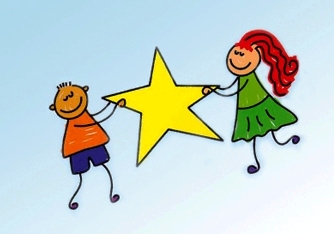![]()
The Words of the Chang Family
|
|
The Words of the Chang Family |

Ever find yourself regretting your choice of words when it comes to your children? Have a hard time figuring out what kinds of activities to do with young children to keep them busy and help them learn while having fun?
Life is extremely busy for the majority of parents in North America. Some parents are going at it alone, while married mothers often feel alone in their parenting due to the overall stresses of life. It gets hard, and often times, there isn’t anyone around to help plan the day out.
Carla A. Woolf’s book, Connecting the Dots: The Cognitively Correct™ Way to Speak With Preschoolers is so incredibly wonderful as a solution to this dilemma! It’s great for parents, teachers, child-care givers, babysitters, older siblings, aunts and uncles, and the list goes on. There hasn’t quite been a book of this caliber on the bookstore shelves within the last 10 years. I say this because Woolf manages to not only provide applicable solutions in her book, she manages to also provide a comprehensible structure to her book, so busy people like parents won’t feel as if reading her book is taking up too much of their precious time.
Woolf’s book is divided into three comprehensible parts that are clean-cut and to the point. Part One provides her theory and reasoning behind what she calls the “Dialect of Positivity.” Woolf is on a “quest for a language that reflects potential positivity and possibility.” Woolf also delves into the damaging effects of what she dubs the “dialect of fear,” especially how it has been prevalent in interactions between adult and child as well as between adult and adult since the great world tragedies, namely the great world wars.
Part Two has creatively been constructed as a learning process for adults by use of a hypothetical conversation between two adult educators, one male, one female, and a four-year-old girl carefully named “Eve.” The “interview” covers what in Woolf’s estimation is language that is comprehensible by preschoolers and thus required from adults. It’s a quick read covering a variety of points that we overlook or were never taught about preschoolers’ ability and capability to understand at such a young age and what is required of us to nourish their ability to grasp the correct meaning in our choice of words.
Part Three is my favorite part of Woolf’s book. It’s jam packed full of applicable information! This section charts out the cognitively correct dialect, or “Dialect of Positivity,” against the incorrect dialect we hear on a regular basis as it would come up in specific situations, such as when teaching about health and safety or when teaching about environment. This section is subsectioned into situational dialect, with each section finished off with a summary, the reasoning behind the correctness and incorrectness of the dialect reiterated in point form, and a short list of helpful materials to have handy for teaching that particular situation.
There is a short list of additional suggested reading on the topic of cognitively correct dialect as well as a glossary of terms used throughout the book that enlarge upon Woolf’s perspective.
Woolf provides a valuable resource of practical guidance as well as theory on cognitively correct dialect. She provides for the everyday educator a language that reflects “potential positivity and possibility” though she admits that her theories are still debatable and need further work. Regardless, as much as two thirds of this book is applicable in a practical, everyday manner, and that is more than I can say about most books that claim to be useful. I highly recommend this book to EVERYONE as a guide on how to communicate verbally to anyone in a manner that says “I am here for you.”
To learn more about Carla A. Woolf and Connecting the Dots: The Cognitively Correct™ Way to Speak With Preschoolers, visit www.ccthedots.com
Review by Shin Young Chang